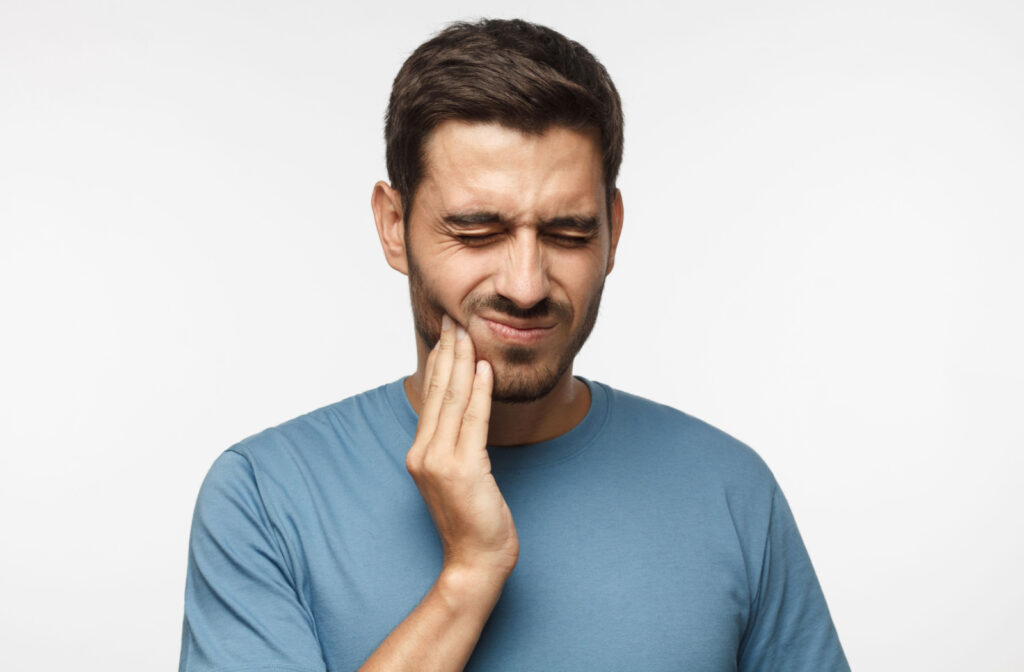While bad breath is something that affects most of us at some point, it can be a bit embarassing. Chronic bad breath can make you self-conscious, hinder your ability to express yourself, and even create social barriers. While poor oral hygiene is a primary cause of bad breath, other underlying factors could be the cause.
Cavities are not always the culprit of bad breath, but gum disease can lead to halitosis and a bad taste in your mouth. Advanced cavities and tooth decay can leave you vulnerable to developing gingivitis and gum disease. Regular dental cleanings and exams can detect early signs and help improve your oral health habits at home.
What Are Cavities?
Cavities result from tooth decay caused by harmful bacteria that thrive in our mouth. These bacteria feed on the sugars that come into contact with our teeth and excrete acid, which gradually wears away the enamel of our teeth. This can create a cavity or a hole in our teeth.
Signs of a cavity can include:
- Toothaches
- Tooth sensitivity to hot, cold, and sweets
- Discolouration on the teeth
- Swollen, inflamed, or bleeding gums
- Bad breath
The bacteria can turn into plaque and tartar buildup on your teeth and gumline, leading to gingivitis—the early stage of gum disease.
Bad Breath & Gum Disease
The cavity itself does not directly cause bad breath. The bacteria that cause cavities can cause gum disease, leading to bad breath. The bacteria produce a volatile sulphur compound, which has a bad smell. Although bad breath caused by cavities may not always be noticeable, it can be a prevalent problem in some individuals, especially those with cavities in hard-to-reach areas.
Cavities that are left untreated can lead to the spread of bacteria, which can create an ideal environment for gum disease to begin. Gum disease is a significant culprit of halitosis. Gum disease can progress to periodontitis if left untreated, a bacterial infection of the gums that attacks the bones that support your teeth. If not treated, it could ultimately lead to the need for tooth extraction.
How to Prevent Cavities & Gum Disease
Prevention is always better than cure. Proper oral hygiene is one of the best ways to prevent cavities and bad breath.
Healthy oral hygiene includes:
- Brushing twice a day
- Flossing daily
- Using antibacterial mouthwash with fluoride
- Limiting your intake of sugary foods and beverages
- Not smoking
- Avoiding excessive alcohol consumption
If left untreated, cavities and gum diseases can cause severe pain, discomfort, and even tooth loss. These problems can be easily avoided by properly caring for your teeth and gums.
Brush & Floss Regularly
One of the most effective ways to prevent cavities and gum diseases is to brush and floss your teeth regularly. Brushing twice a day for 2 minutes each time and flossing once daily can remove plaque buildup, a primary cause of cavities and gum disease.
Use fluoride toothpaste to clean your teeth and gums. If you have inflammation, opt for a soft bristle brush.
Limit Sugary & Acidic Foods
Sugary and acidic foods can erode the enamel on your teeth and promote the growth of harmful bacteria that cause cavities and gum disease. Try to limit your consumption of sugary and acidic foods and drinks. If you do eat or drink them, you can protect your teeth by rinsing your mouth with water and brushing afterwards—just be sure to wait 30 to 60 minutes before brushing after eating or drinking.
Attend Regular Dental Checkups
Regular dental checkups are essential to maintaining good oral health. Your dentist can examine your teeth and gums for any signs of cavities or gum disease and recommend treatment options if necessary. It is recommended that you see your dentist at least once every 6 months.
Use Mouthwash
Mouthwash can help kill harmful bacteria in your mouth that cause cavities and gum diseases. Use a mouthwash after brushing and flossing your teeth for maximum effectiveness. Opt for a mouthwash that contains fluoride to strengthen your enamel and prevent cavities and gum disease.
Chew Gum
Chewing sugar-free gum after meals may help prevent cavities. The act of chewing stimulates the production of saliva, which helps wash away food particles and neutralize harmful acids in your mouth. Choose gum that contains xylitol, as it can help prevent the growth of harmful bacteria in your mouth.
However, if you have temporomandibular joint disorder (TMD), constant chewing may cause pain. Talk to your dentist about alternative methods to protect your teeth from bacteria.

Prevent Cavities & Gum Disease
You can eradicate the bacteria that causes bad breath with frequent dental cleanings and good oral hygiene habits between appointments. Request an appointment with Kensington Dental Care for your oral care needs to support healthy teeth and gums.










